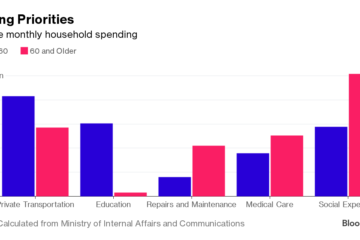Matt Levine’s Money Stuff: Illegal Stock Tips and Risky Loans

published Oct 5th 2016, 8:17 am, by Matt Levine
(Bloomberg View) —
Insider trading.
I don’t know what else there is to say about the Salman insider trading case being argued before the Supreme Court today, but I guess Salman’s and the government’s lawyers will find something. If you pass inside information about an upcoming merger to your brother, without receiving a personal benefit in return, is that illegal insider trading? I’m pretty sure the answer is yes, but the exact mechanics of how the court gets to yes will determine who else can pass what sorts of information to whom without going to prison.
There are various dumb categories of questionable trading where the answer matters — what if instead of your brother it’s your golf buddy? — but those seem like the wrong focus. The important cases are not about brothers and golf buddies but about professional relationships. Professional investors are in the business of finding things out about companies, and they do this in part by talking to people. They talk to the investor relations department, they talk to the chief financial officer, they talk to the chief executive officer, they talk to members of the board of directors. They talk to suppliers and scientists and consultants and outside experts, some of whom they pay for their time. Where these conversations cross over from “research” into “insider trading” has always been murky, and the legal focus on dumb cases of brothers tipping brothers always tends to further obscure the line. Of course Salman is another brother-tipping-brother case, so it may not be the most effective vehicle to clarify the law.
Anyway here is a bunch of quotes from people about insider trading, many of which are pretty unedifying, but this from former Securities and Exchange Commission enforcement director Linda Chatman Thomsen is exactly right: The law is “somewhat schizophrenic because we simultaneously want people to work hard to gain an edge, and at the same time want there to be an equality of information. … It’s just thorny.”
Yep! Very loosely speaking, the way the law currently draws that line is that if you talk to people to get information, it’s good research, but if you bribe them for information, or if they’re your brother, it’s bad insider trading. But oh boy is that not legal advice. Perhaps soon we’ll have a clearer line.
Elsewhere here is a column from R. Foster Winans, the former Wall Street Journal columnist who was convicted of insider trading for selling tips about his upcoming columns, which is for obvious reasons one of my favorite insider trading cases. I do not sell early access to Money Stuff but, you know, let’s see what the Supreme Court says.
Banking is risky.
Sometimes around here we’ll talk about some weird derivative trade that some bank does, and that people think that banks shouldn’t be allowed to do, and I’ll say something like “well really this is no worse than what the Bailey Building & Loan does in ‘It’s a Wonderful Life.'” The point is that the regular old-timey small-town business of banking — of taking demand deposits and using them to make medium-term loans to local small businesses whom you’ve gotten to know and trust — is itself inherently incredibly risky. The Bailey Building & Loan, after all, required a bailout!
Anyway here is a story about a banker who literally took demand deposits and used them to make loans to local small businesses and was told by his regulators to cut it out because it was too risky. Also his bank was literally named Main Street Bank: The clash began in 2009 when federal examiners questioned the bank’s concentration of small-business loans. Nearly all of Main Street’s $175 million loan portfolio had gone to customers like dentists, owners of fast-food franchises and delivery-truck drivers.
The Federal Deposit Insurance Corp. slapped Main Street with a 25-page order in 2010, ordering it to boost capital, strengthen controls and bring in new management. The regulator also said the bank was putting too many eggs in one basket and ordered the bank to shrink its small-business lending portfolio to about 25% of the bank’s total loan portfolio, down from about 90%.
So he gave up his bank charter, sold his branches and rebranded as a [spooky Halloween voice] shaaaaaaaaaadow baaaaaaaaaank (named “Ascentium Capital LLC”). Now everything is great, and he’s selling his shadow bank, which was backed by private-equity firm Vulcan Inc., to another private equity firm, Warburg Pincus LLC.
I don’t know what the moral of this story is. Maybe he should have diversified his assets by buying some AAA-rated mortgage-backed securities. Or maybe banks should not be in the business of maturity transformation, or of taking credit risk. The mysteries are deep.
Bailouts.
Meanwhile, here are Stephen Lubben and Arthur E. Wilmarth, Jr., arguing that the Dodd-Frank “single point of entry”/”total loss-absorbing capacity” regime for winding up failing banks won’t work, in part because “TLAC debt will also create a new, more opaque way to impose the costs of financial distress in SIFIs on ordinary citizens, because most TLAC debtholders who could lose their standing as creditors are likely to be retail investors in brokerage accounts, mutual funds, and pension funds.”
The arithmetic here is pretty simple. Banks own a pile of assets. Sometimes those assets lose value. Someone has to lose money when that happens. Generally that someone is the shareholders, but once the shareholders are all out of money, someone else needs to lose money. You just need to pick someone. The point of the TLAC regime is to pick the someones in advance, and give them fair warning that if the bank loses a whole lot of money they will lose money too, and then actually make them lose money if that happens. (Instead of the old alternative of having the government step in to lose the money.) Like, the whole idea is that when TLAC holders come to you and demand a bailout because they didn’t understand that they might lose money, you can say to them “you bought total loss-absorbing capacity securities, what did you think would happen?”
The problem is that the TLAC debtholders will be ordinary citizens, retail investors, mutual funds, and pension funds, but who else could they be? Where would loss-absorbing capacity come from if not from investors? The notion of “bailouts” in banking has become so amorphous that now we think that making investors in a bank lose money is somehow a bailout.
Fannie and Freddie.
One of the critical claims in the endless flurry of shareholder lawsuits against the government over Fannie Mae and Freddie Mac is that in 2012, the government knew that Fannie and Freddie would soon be profitable, and changed the terms of their bailouts to take all of those profits for the Treasury rather than returning any of them to the companies’ common and preferred shareholders. The government argues instead that it thought Fannie and Freddie could never be profitable, and that it changed the terms of the bailouts — which had previously required a fixed dividend to the government — so as not to demand more from the companies than they could afford to pay. The government’s argument has always struck me as silly as a matter of accounting, and in any case there is the awkward fact that soon after the bailout terms were amended and the Treasury started sweeping all of the companies’ profits, the companies became very profitable.
I don’t know how much this all matters legally — it seems to me that the government had a whole lot of leeway to amend the bailout terms even for bad reasons — but it is at least embarrassing, and the shareholders seem to think that somewhere in the government’s files there is a smoking gun that will prove their case and force the Treasury to pay them back billions of dollars. Sure, maybe, why not. Now they are one step closer to finding it: The United States government improperly withheld documents from investors who were suing the government over its decision in 2012 to seize all of the profits of Fannie Mae and Freddie Mac, the mortgage finance giants, a federal judge has ruled.
The judge, Margaret M. Sweeney of the Court of Federal Claims in Washington, also ordered the release of the documents, some of which appear to reach the highest levels of the Obama administration.
Do you think there’s a note from President Obama himself saying “I don’t care if Fannie and Freddie are profitable, I want you to zero those shareholders”? If there was, would that help the shareholders’ case? Hurt it? Would it be politically unpopular? Wildly popular? Elsewhere in crisis-retro litigation: “Former A.I.G. Chief Denies He Knew of Payback Terms in Reinsurance Deal.”
Director independence.
The idea of “independent directors” is that you want the directors who supervise the chief executive officer (and set her pay) not to also work for her. So, sure, put your general counsel on the board if you must, but don’t put him on the compensation committee, where he might be too beholden to the CEO to make tough compensation decisions. But there are a range of relationships other than direct employment that might make a director less than fully independent. Is an outside lawyer, or investment banker, independent? The CEO is not his direct boss, but his firm might make a nice living on fees from the company, and he might want to stay friendly with management. What about someone on a charitable board with the CEO? What about the CEO’s golf buddy? There are rules about this — basically you have to have “no material relationship” with the company — but they can’t cover everything, and to a certain extent they are all sort of a beside-the-point formality. The question is whether the directors feel like the CEO works for them, or like they work for the CEO, and tracing business payments can never quite capture that dynamic. Anyway here’s an article about directors who are also paid lobbyists for their companies, which may or may not create independence issues.
Elsewhere in governance, Ides Capital, which “appears to be the first activist hedge fund in the United States fronted by a woman,” is pushing boardroom diversity; it “sees diversifying small and midsize corporate boardrooms as a way to help improve stock prices.” And the SEC is looking into LendingClub:
As part of a broad investigation into the online lending platform, the U.S. Securities and Exchange Commission is reviewing Renaud Laplanche’s role in a $150 million share buyback approved in February, said the people, who asked not to be named because details of the probe aren’t public. Laplanche, who was chairman and chief executive officer at the time, had pledged some of his shares as collateral for a loan and was required to put up more money if the stock slid below a certain price, the people said.
In general it is tough to find a “the CEO works for the board” mentality when the CEO is also the founder. Often that is great! The founder is the visionary; the directors are just his advisers. But at a public company it can create some awkward governance issues.
“I would tax all foreigners living abroad.”
This Reza Zarrab case is pretty weird. He is a Turkish-Iranian citizen who was living in Turkey when he transferred money for Iranian banks, and has now been arrested in the U.S. for violating sanctions. But:
In court filings, Mr. Zarrab’s team of 15 defense lawyers say Mr. Zarrab’s money transfers with foreign banks were entirely legal in Turkey and had “non-existent connections” to the U.S. Even though some of the transactions were cleared by U.S. banks, the payments were ultimately directed between foreign countries, such as from Turkey to China, and should not fall under U.S. regulation, according to the defense.
“This is prosecutorial overreach of the first order,” Mr. Zarrab’s lawyers wrote in a July court filing. “It is as unprecedented as it is problematic.”
The weird thing about the U.S. dollar being a universal global currency, and about all dollar transactions being cleared through U.S. banks, is that it essentially subjects everyone in the world to U.S. jurisdiction. (If we can catch you.) You’re an Iranian banker living in Turkey transferring money between a Turkish company and an Iranian bank, with everything being perfectly legal under Turkish and Iranian law? If that money is in lira, or dinars, you’re fine. If it’s in dollars, you are breaking U.S. law — even if you’ve never been to the U.S. And if you ever do come — Zarrab was arrested while on vacation in Miami — you can face “a maximum prison sentence of 75 years.”
Elsewhere in somewhat weird enforcement cases, the Commodity Futures Trading Commission may settle its spoofing case with Igor Oystacher.
Some Goldman paranoia.
Look, I am not going to lie to you, when I left Goldman Sachs to go write for Dealbreaker, and I took my two months of enforced paid gardening leave, I did spend some time wondering if Goldman was going to send someone to kill me. I mean, they did manage to get Sergey Aleynikov prosecuted twice for taking some (probably open-source!) computer code with him when he left. There is a certain ingrained paranoia about leaving Goldman that is hard to explain to outsiders, and embarrassing to think about now, but that at the time feels very real. These guys, who are super paranoid about talking to the press, know what I’m talking about:Also unusual are the lengths ex-Goldman staff will go to in order to avoid being busted if they do contravene the firm’s demands. “They have speech recognition software,” one Goldman veteran tells us. “You need to scramble my speech patterns or they will know who I am.” Another insists that “the firm” is able to subpoena private emails and LinkedIn messages, and that the only safe spaces to talk are therefore encrypted email and messaging services like Shush and What’sApp.
This is absurd. First of all, I am not sure that the “exit agreement” for laid off Goldman employees really completely forbids talking to the press. (I left on my own, with only a little in the way of deferred stock, so this did not particularly affect me.) But also, this is a written article: You’re telling me that Goldman has software to scan news articles and analyze anonymous quotes for “speech patterns” to identify former employees who might have talked? That they can get former employees’ private e-mails? Come on. And yet five years ago I probably would have nodded and been like, yeah, of course, they are reading my LinkedIn messages right now, that’s how they get you.
People are worried about unicorns.
We have some worries today about Uber, the Ubercorn, ranging from a self-driving Uber going the wrong way down a one-way street in Pittsburgh up to Izabella Kaminska’s argument that Uber “undermines decades worth of urban planning work focused on encouraging mass transit options like buses and trains, whilst marginalising petrol-guzzling space-consuming single-occupant cars.”
People are worried about bond market liquidity.
Here is the story of a bond exchange-traded fund that had a single customer withdraw 88 percent of the fund’s assets in a single day, taking out more than $130 million and leaving the fund with just $19 million under management. And … everything was fine? According to Bloomberg data, the fund — the WisdomTree Australia & New Zealand Debt Fund, ticker AUNZ — traded an average of 7,574 shares per day in the two months leading up to last Wednesday. Then on last Wednesday it traded 7.4 million shares, as Franklin Templeton Investments Corp., its biggest holder, cashed out. And the fund was up 0.43 percent on the day. It’s a small fund, but still: Should this make you less worried about bond ETFs and liquidity?
Elsewhere, here is Bloomberg’s Odd Lots podcast discussing “one of the most pervasive mysteries of market structure with Chris White, the former Goldman Sachs executive who’s now CEO of ViableMkts, and his old boss, Les Seff, COO at AIMPaaS LLC, to discover why bond trading remains so darn old-fashioned despite numerous attempts to pull it into the 21st century.”
Things happen.
BlackRock Cuts ETF Fees. Apps Like Venmo to Come Under Stricter Government Oversight. Jack Dorsey Is Losing Control of Twitter. Twitter Is Expected to Field Bids This Week. Yahoo secretly scanned customer emails for U.S. intelligence. J&J Warns Diabetic Patients About Hacking Risks of Insulin Pumps. Citi to Invest $1 Billion in Mexico Operations, Renames Unit. Fitch warns Wells Fargo it risks losing AA rating. Deutsche Bank Brings Too-Big-to-Fail Quandary Home to Merkel. Banks targeted in emergency clearing house plan. “Trading revenue of U.S. commercial banks and savings associations rose to $6.9 billion in the second quarter of 2016 from $5.8 billion in the previous quarter, and $5.5 billion in the second quarter a year earlier.” Oil Explorer Claims Major Alaskan Find. A ‘Mystery’ to the Gas Market Is Floating in the Mediterranean. Gold Posts Biggest Loss in Nearly Three Years. A Onetime Housing Skeptic Plans $1 Billion Bet on Homes. There were some problems with a real Wall Street casino. Irene Bergman, Longest-Working Woman on Wall Street, Dies at 101. Treasury celebrates the 8-year anniversary of TARP. Deadwood was so great. Where Have All the Fun Sitcoms Gone? Rolls-Royce Made a Picnic Basket That Costs $46,000. Love that new Mac smell? Now you can buy a candle that smells like a freshly-opened Apple product. Animated GIFs Illustrating the Art of Japanese Wood Joinery. Cod have regional accents, recordings reveal.
This column does not necessarily reflect the opinion of the editorial board or Bloomberg LP and its owners.
To contact the author of this story: Matt Levine at mlevine51@bloomberg.net To contact the editor responsible for this story: James Greiff at jgreiff@bloomberg.net
For more columns from Bloomberg View, visit Bloomberg view
copyright
© 2016 Bloomberg L.P







No Comment